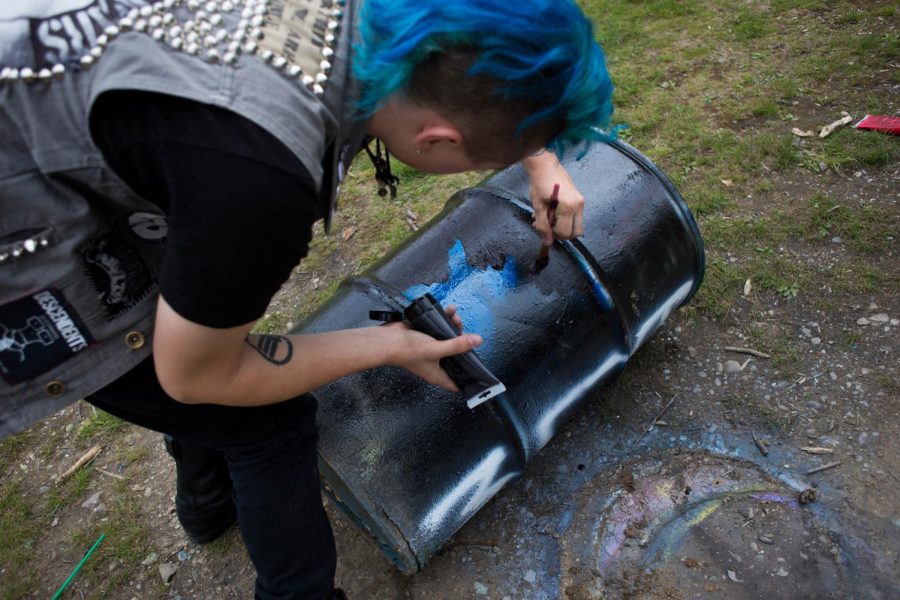Students paint rock in support of Black Lives Matter
May 4, 2016
The rock on front campus was painted several times within a few hours on Wednesday during the May 4 commemoration ceremony.
Initially it was painted with “Black Lives Matter #solidarityforSamaria” around 10 a.m. in support of Samaria Rice, who delivered the keynote address during the ceremony.
Samaria Rice is the mother of 12-year-old Tamir Rice, who was shot and killed by police in a Cleveland park in November 2014.
After “Black Lives Matter” was painted, the rock was repainted to say “All Lives Matter” and “Blue Lives Matter,” in reference to police.
Arie Hayre-Somuah, a senior public health major, said she initially went out at 10:45 a.m. to paint the rock in support of the Black Lives Matter movement.
She later heard in the afternoon the message had been painted over.
She said “Black Lives Matter” doesn’t mean all lives don’t matter or that cops’ lives don’t matter; it’s meant to show that black lives are equally as important.
“They don’t understand where we’re coming from,” Hayre-Somuah said. “Black lives are being disproportionately killed. In this moment, black lives matter.”
She said she was upset to see “Blue Lives Matter” painted on the rock because it represented how cops shouldn’t take responsibility for their actions, and black lives matter enough for them to be held accountable.
Ritchie Allen, a sophomore sociology major, said he didn’t paint the rock, but ran out with spray paint in hand once he saw on social media that it had been changed. He said he wanted to help because the rock being repainted was a sign of “state oppression.”
“It’s not a subjective reality you can choose to see,” Allen said. “Freedom is merely privilege extended to all. We’re all entitled to it.”
Allen said there are students who believe the lives of black students are important, and it’s essential for others to support them.
Hayre-Somuah said students coming together to paint the rock back to “Black Lives Matter” is a symbol that the deaths of black lives is an issue that affects more than just one community. She said it serves as a wake-up call and demonstrates that it’s not an exclusive movement.
“They don’t care if we die,” Hayre-Somuah said. “We’re here to say we’re part of this nation, too.”
Marissa Barnhart is a city reporter for The Kent Stater. Contact her at [email protected].












